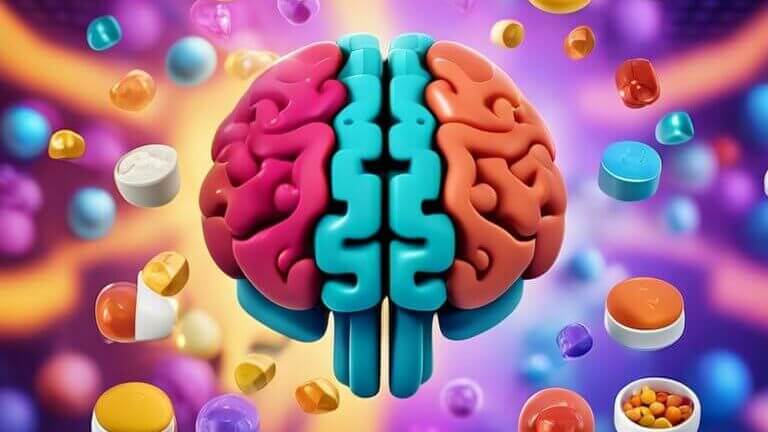Just as SUVs dominate the American landscape, bipolar disorder can dominate the lives of those who are diagnosed with it.
It is necessary to address this condition with the seriousness and urgency it deserves.
Psychoeducation can be the key to unlocking a deeper understanding of the disorder and its management, ultimately leading to better outcomes for individuals dealing with bipolar disorder.
By implementing early intervention strategies, we can empower individuals with the knowledge and tools they need to navigate their condition effectively.
In this post, we will explore the critical importance of psychoeducation and early intervention in bipolar disorder, shedding light on how these interventions can make a significant difference in the lives of those affected.
The Cornerstones of Bipolar Disorder Management
Role of Psychoeducation
While the journey of managing bipolar disorder can be tumultuous, the cornerstone of psychoeducation stands firm as a beacon of hope and understanding.
With the right information and guidance, individuals can navigate the complexities of their condition with empowerment and confidence.
By educating oneself and their support network on the intricacies of bipolar disorder, individuals can make informed decisions about their treatment and lifestyle choices, leading to improved outcomes and a higher quality of life.
Early Intervention Strategies
Cornerstones of bipolar disorder management also include early intervention strategies, which play a crucial role in mitigating the potential risks associated with the condition.
Strategies such as regular monitoring of symptoms, timely medication adjustments, and swift access to mental health services can significantly impact the trajectory of the disorder and overall well-being.
By recognizing warning signs early on and taking proactive measures, individuals can prevent escalation of symptoms and maintain stability in their mental health.
Components of Effective Psychoeducational Programs
Understanding Bipolar Disorder
If we truly want to empower individuals with bipolar disorder, it is crucial that they have a comprehensive understanding of the condition.
Psychoeducational programs should provide accurate and up-to-date information about the symptoms, causes, and potential triggers of bipolar disorder.
Knowledge is power, and in this case, it can help individuals better navigate their emotions and behaviors, as well as educate their support networks on how to best assist them.
Developing Coping Strategies
It is not enough to simply understand bipolar disorder; individuals must also learn how to effectively manage their symptoms.
Psychoeducational programs should offer practical strategies for coping with mood swings, medication management, and stress management.
For instance, teaching individuals how to identify early warning signs of a mood episode can help them intervene before it escalates into a full-blown crisis.
Implementing Early Intervention
Identifying Early Warning Signs
Despite the challenges that individuals with bipolar disorder may face, early identification of warning signs is crucial in initiating effective interventions.
Research has shown that recognizing subtle changes in mood, sleep patterns, and behavior can greatly improve outcomes for individuals with bipolar disorder.
Intervention at the earliest signs of a potential episode can prevent the escalation of symptoms and reduce the impact on daily functioning.
Interventional Support Systems
Interventional support systems play a key role in providing the necessary tools and resources for individuals with bipolar disorder to effectively manage their condition.
With the right support in place, individuals can learn coping strategies, develop healthy routines, and access timely treatment when needed.
Peer support groups, therapy, and psychiatric services are all necessary components of a comprehensive support system.
Societal and Individual Benefits of Education and Early Intervention
Improving Quality of Life
Benefits of psychoeducation and early intervention in bipolar disorder are abundant.
Research suggests that individuals who receive psychoeducation regarding their condition have a better understanding of their symptoms and treatment options, leading to improved management and overall quality of life.
Early intervention strategies can mitigate the impact of manic and depressive episodes, reducing the severity and frequency of mood swings.
By equipping individuals with the knowledge and tools to navigate their illness, they can regain a sense of control and empowerment in their lives.
Reducing Stigma and Enhancing Awareness
Individuals with bipolar disorder often face stigmatization and misunderstanding from society due to misconceptions surrounding the condition.
By educating the public and raising awareness about bipolar disorder, we can combat these harmful stereotypes and promote acceptance and support for those living with the illness.
Increased awareness can also encourage individuals to seek help early on, leading to better treatment outcomes and a greater sense of community understanding and empathy towards those with bipolar disorder.
Conclusion
Hence, it is crucial to underscore the significance of psychoeducation and early intervention strategies in the comprehensive management of bipolar disorder.
By equipping newly diagnosed individuals, their support networks, and mental health educators with the necessary knowledge and skills, we can empower them to navigate the complexities of this condition with resilience and understanding.
As advocates for enhanced outcomes, it is imperative to prioritize education and intervention at the onset of diagnosis, fostering a deeper comprehension of the disorder and paving the way for proactive and effective management.
Through a united effort to prioritize education and intervention, we can truly empower minds and transform the landscape of bipolar disorder treatment for the better.Y







